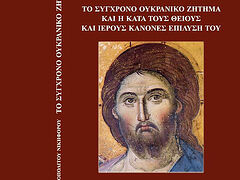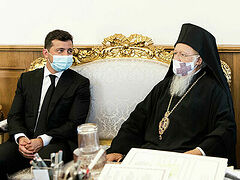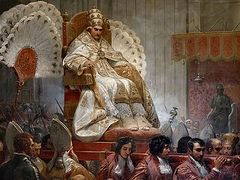Recent events in Cyprus bear witness to a fact that is unfortunately no longer in doubt: Pan-Orthodox unity no longer exists. Moreover, the Orthodox world is facing a new and very dangerous schism. Its basis is the thirst for individual power, and its main tool is the willingness to ignore the canons, the truth, and the conscience in the process of achieving this goal.
A defective and malicious copy of world Orthodoxy is now being built before our eyes. In this parallel system, such aspects as the perversion of the canons, the legalization of schismatics, concelebration with people who have no valid ordination, and the trampling of the conciliar format of Church governance are considered natural and normal.
That is, everything that until only recently seemed unthinkable and impossible.
But behind this reality, new landmarks are already looming. We are talking about the further erosion of Orthodox ecclesiology, open concelebration with representatives of other confessions, agreement with the imposition of LGBT culture, and so on.
Do the leaders who are guiding their Churches into this cheap imitation of world Orthodoxy understand that it will be simply impossible to avoid further decline? After all, if you’re already jumping into the abyss, you certainly won’t be able to stop on the way down.
Do the leaders of these Churches understand that taking part in big geopolitical and political games has its price? For example, will they be able to refuse certain external forces if they demand that they guarantee Church support for the promotion of LGBT interests? Will they have enough courage to say “no?” I doubt it very much, given how some primates have already caved on the question of recognizing the schism.
Therefore, we must speak of the crisis taking place in world Orthodoxy not as some kind of confrontation between the “Greek” and “Slavic” worlds, or as a battle for ecclesiastical administrative boundaries.
Everything is much more complicated and more acute. In fact, a great schism is taking place, which is dragging more and more Local Churches into the funnel of this system that runs parallel to the real Orthodox world.
That is why the essence of the current crisis can be reduced to the struggle of those who want to create their own comfortable version of Orthodoxy that corresponds to their own interests with those who want to remain faithful to Orthodoxy.
This should be understood by every cleric and every believer in any Orthodox Church, and on the basis of this understanding they must make their choice—to remain among those faithful to God or to compromise with their conscience and become a member of the imitation of Orthodoxy.





